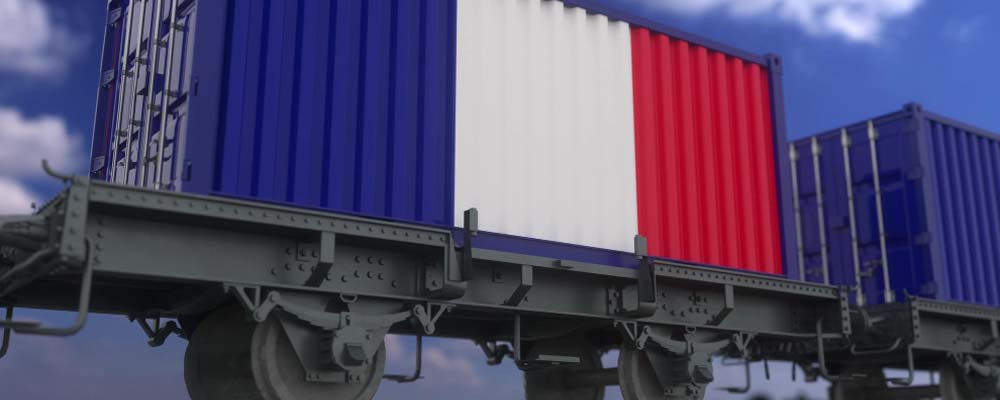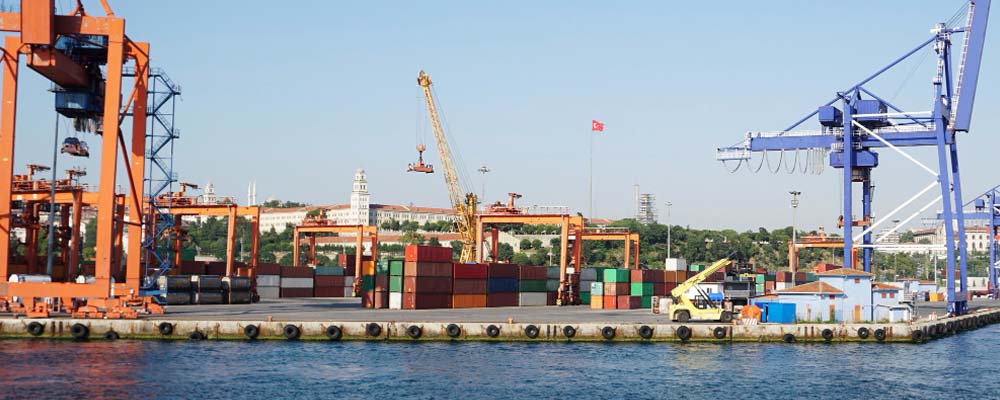
Shipping containers to France can be a complex process, but with the right knowledge, it becomes manageable and efficient. Whether you’re a freight forwarding company, logistics provider, importer/exporter, or involved in any other industry related to shipping, this guide will provide you with the essential information you need.
What are the Ways to Ship to France?
Shipping to France offers several methods, each suited for different needs and circumstances. The most common ways include sea freight, air freight, and rail transport.
Sea Freight
Sea freight is the most popular method for shipping containers to France. It’s cost-effective, especially for large volumes, and allows for a variety of container sizes. Ships can carry vast quantities of goods, making it ideal for bulk shipments.
Air Freight
Air freight is faster than sea freight but usually more expensive. It’s suitable for urgent shipments or high-value goods that need to reach their destination quickly. Though not as common for large container shipments, it’s a viable option for smaller, time-sensitive cargo.
Rail Transport
Rail transport is an emerging method for shipping containers within Europe. It’s a middle ground between sea and air freight in terms of cost and speed. It’s particularly useful for shipments originating from or destined to landlocked regions.
 What Are the Costs to Ship a Container to France?
What Are the Costs to Ship a Container to France?
Shipping costs vary based on several factors, including the type of freight, distance, and current market conditions. Here’s a breakdown of the primary components that influence the pricing:
Freight Type
The type of freight—whether it’s full container load (FCL) or less than container load (LCL)—significantly impacts the cost. FCL is generally cheaper per unit of cargo because you’re renting the entire container, while LCL charges are based on the volume or weight of the cargo.
Distance and Route
The distance between the origin and destination ports affects the cost. Longer distances naturally incur higher costs. Additionally, the shipping route and frequency of service also play a role in pricing.
Market Conditions
Shipping rates fluctuate based on supply and demand, fuel prices, and seasonal factors. It’s essential to monitor market trends and book shipments accordingly.
What is the Transit Time When Shipping to France?
Transit times depend on the method of shipment and the distance between the origin and destination ports. Understanding these timeframes helps in planning and managing expectations.
Sea Freight Transit Times
Sea freight from major global ports to France typically takes between 10 to 40 days. For example, shipments from New York to Le Havre might take around 14 days, while those from Shanghai could take up to 30 days.
Air Freight Transit Times
Air freight is much quicker, usually ranging from 1 to 7 days depending on the flight schedule and customs clearance times. It’s the go-to option for urgent deliveries.
Rail Transport Transit Times
Rail transport within Europe can take approximately 5 to 12 days. It’s faster than sea freight but slower than air freight, offering a balanced alternative for certain shipments.
 Main Ports in France
Main Ports in France
France boasts several major ports that facilitate international shipping. Knowing these ports and their capabilities is vital for efficient logistics planning.
Port of Le Havre
Le Havre is one of France’s largest and busiest ports, handling a significant portion of the country’s container traffic. It’s well-equipped with modern facilities and offers excellent connectivity to inland destinations.
Port of Marseille-Fos
Situated in the south of France, the Port of Marseille-Fos is a key entry point for Mediterranean and African trade routes. It serves as a major hub for both container and bulk cargo.
Port of Dunkirk
Dunkirk, located near the Belgian border, is another crucial port. It’s known for its efficiency in handling various types of cargo, including containers, liquids, and dry bulk.
How Do I Find a Freight Forwarder in France?
Choosing the right freight forwarder is crucial for smooth shipping operations. Here’s how to find a reliable partner in France:
Research and Reviews
Start by researching potential freight forwarders online. Look for reviews and testimonials from previous clients to gauge their reliability and service quality. Industry forums and business rating websites can be valuable resources.
Certifications and Memberships
Check if the freight forwarder holds relevant certifications and is a member of recognized industry associations. Certifications like ISO 9001 and memberships in organizations like FIATA (International Federation of Freight Forwarders Associations) indicate professionalism and adherence to industry standards.
Service Offerings
Evaluate the services offered by the freight forwarder. Ensure they cover all aspects of shipping you require, including customs clearance, warehousing, and transportation. A comprehensive service provider can streamline the entire process.
FAQs about Shipping Your Container to France
How to Determine Shipping Costs to France?
Shipping costs are determined by various factors, including the type of freight (FCL or LCL), the distance between the origin and destination, and the current market conditions. Always request quotes from multiple carriers to compare prices and services before making a decision.
What Type of Cargo Can Be Sent in a Container to France?
You can ship a wide range of goods in containers to France, including consumer products, industrial machinery, raw materials, and perishable items. However, ensure that your cargo complies with French import regulations and packaging standards to avoid any delays or penalties.
What Paperwork is Needed for International Shipments to France?
International shipping to France requires several documents, including the bill of lading, commercial invoice, packing list, and customs declaration. Depending on the type of cargo, additional certificates such as phytosanitary or fumigation certificates might be necessary. It’s essential to work with your freight forwarder to ensure all paperwork is accurate and complete.
 Conclusion
Conclusion
Shipping containers to France involves various considerations, from choosing the right shipping method to understanding costs and transit times. By familiarizing yourself with the main ports and learning how to find a reliable freight forwarder, you can streamline the process and ensure successful shipments.
To further refine your shipping strategies and receive personalized advice, consider partnering with a professional logistics consultant. They can offer tailored solutions that align with your specific needs and help you stay competitive in the global market.
Ready to take your shipping operations to the next level? Start exploring your options today and experience the benefits of efficient, hassle-free container shipping to France.




 What Are the Costs to Ship a Container to France?
What Are the Costs to Ship a Container to France? Main Ports in France
Main Ports in France Conclusion
Conclusion



